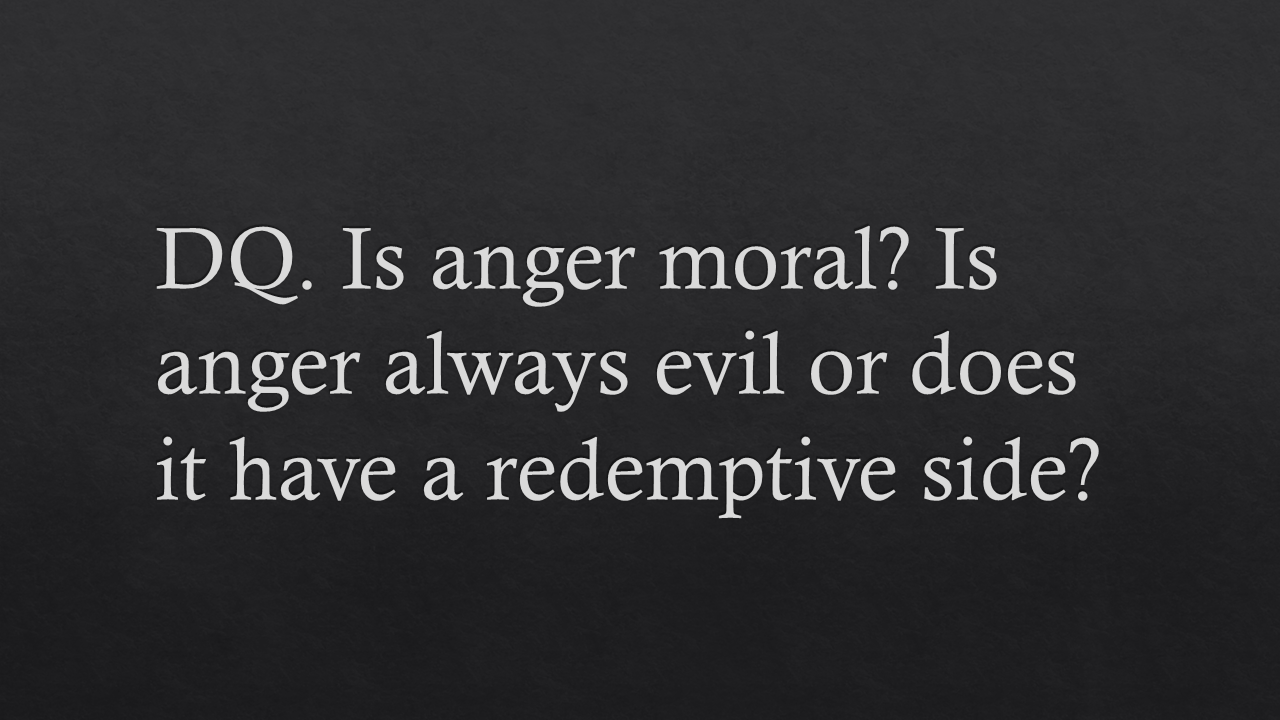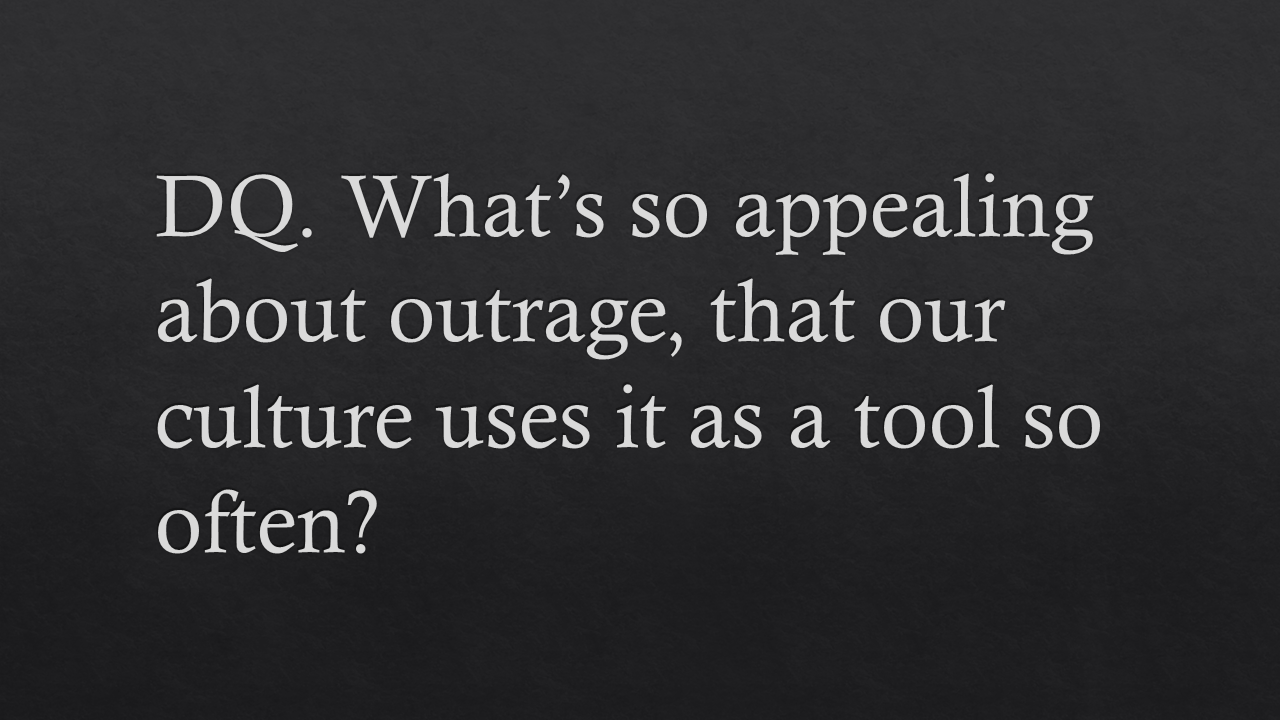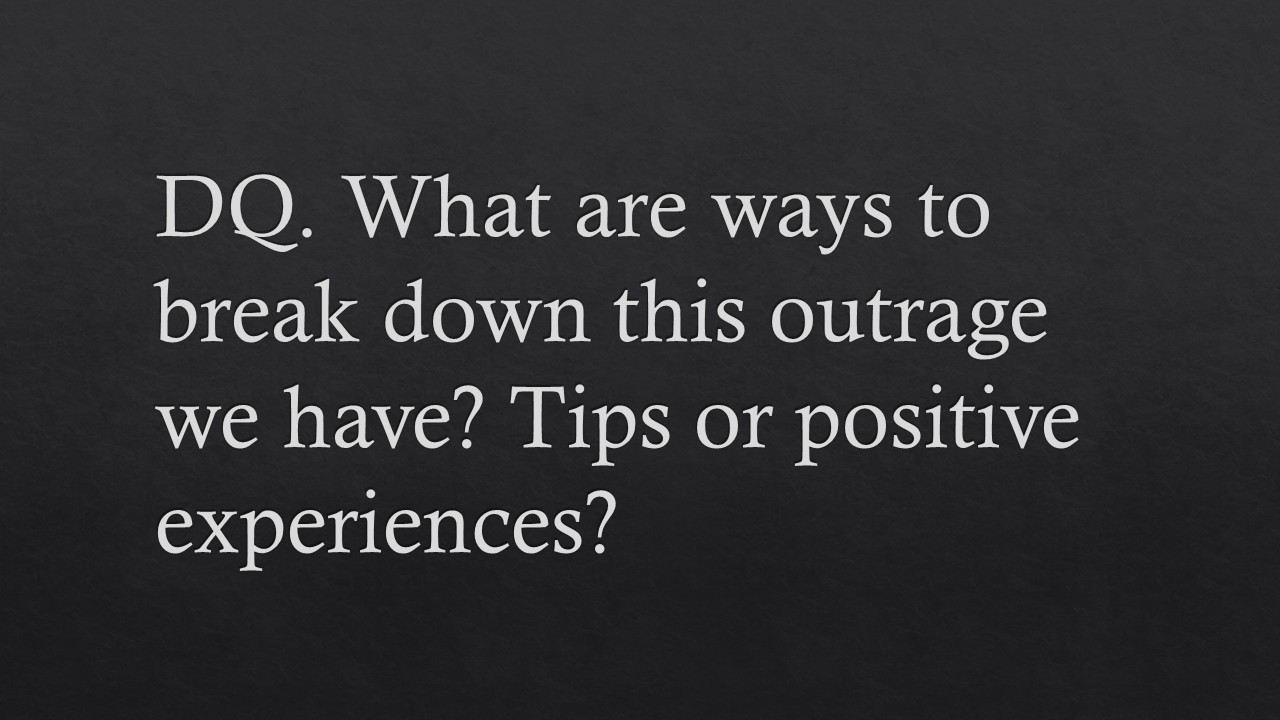Questions God Asks:
Is it Right for You to be Angry About This?
Jonah
December 2023
God's question to Jonah, "Is it right for you to be angry about this?" A direct and piercing question! What would I think if someone asked this to me? Absolutely! "Yes, I absolutely am right to be angry about whatever is currently making me angry!" I feel justified and self-righteous almost every time I am upset. We're tempted to justify ourselves, but surely we are not correct every time. If we are honest, sometimes we have trouble identifying why we are angry. Others, like us men, are infamous at not even knowing when we are angry! These feelings are complicated and our perspective is untrustworthy. Let's see how God deals with Jonah and get some light on our anger. Our culture is increasingly using anger as a weapon and a tool. There is a big need to be thoughtful and just with our anger.
Let's start our passage with the question:
The LORD replied, "Is it right for you to be angry about this?"
NLT
The NASB puts it, "Do you have a good reason to be angry?" Before we discuss the reasons for our anger, we should get a handle on the morality of anger. Our culture seems increasingly angry, but what about Christians? Are Christians allowed to be angry? One cultural meme on Christians is Ned Flanders from The Simpsons. He's completely unrelatable because he is unfailingly nice, to the point of being boring. In the video, the whole town has just helped him rebuild his house, but they've done an incredibly bad job at it, and he finally loses it. Watch the video. This is shocking since Flander's view of Christianity is one of not being angry for any reason. On the other hand, some people in our culture view Christians as being angry and hateful all the time. What is the role of anger? What is the morality of anger?

Is anger good or bad? Anger can certainly be judgmental and contrarian. This is usually unproductive. Railing without mercy is not Jesus-like. Anger is used to nitpick and harm. Yet, God gets angry at sin. Jesus was angry at the cleansing of the temple. A just, righteous anger also exists. If we are not upset by injustice, what is the appropriate response?
Anger is morally complicated because it cuts two ways:
(1) Anger which is selfish and petty. Anger is very, very frequently abused in selfish or small things. Think about how we are furious when other people's ideas are chosen over ours. Or when we have to wait in traffic. Or when we yell at our kid for humming the same song all day. These are not just uses of anger. We do not have a right to be upset about everything, certainly not to the level we often are upset.
(2) Anger which expresses love and justice. Being mad at a drunk driver swerving down the street is just. They are endangering themselves and others in ways they probably do not even realize. My wife and I saw a potential KIA-boy on our street just a couple weeks ago. This young man was driving completely erratically, veering at pedestrians (including us). He almost hit our neighbor and was out when buses were beginning to drop students off home. We were furious. This guy is "having fun" irresponsibly driving and endangering people. Or consider the scandal in Ethiopia last June. Massive amounts of humanitarian aid was stolen in what appears to be systematic ways, leaving people to starve. People died, not because food wasn't available, but because the food intended for them was stolen and sold for profit instead... What's the appropriate reaction to things like this? Jesus's reaction to people being robbed in the temple was to form a cord into a whip and drive them out.
Since anger can be good or bad, it is easy to deceive ourselves about anger. Are we more likely to misidentify selfish anger or righteous anger when our blood is up? How would we know, "is it right to be angry about this?" The book of Jonah gives us three tips, or pieces of advice.
Consider the Context of Your Anger
The first, is to think about what's happening in context of our anger. This often gives us a tip as to why we are angry. Why we are angry may help us determine if our anger is just.
This change of plans greatly upset Jonah, and he became very angry. So, he complained to the LORD about it: "Didn't I say before I left home that you would do this, LORD? That is why I ran away to Tarshish! I knew that you are a merciful and compassionate God, slow to get angry and filled with unfailing love. You are eager to turn back from destroying people. Just kill me now, LORD! I'd rather be dead than alive if what I predicted will not happen."
The LORD replied, "Is it right for you to be angry about this?"
What went wrong? Expectations! The plans changed, things turned out differently than Jonah expected, and he's pissed about it. This is very relatable! My sons get furious when they think they'll be able to play video games and then something happens to prevent it. Their expectations are dashed and they flip out. How childish! I get upset when a relaxing evening is interrupted by a constant stream of my kids coming downstairs. I think I'll be able to chill with no responsibilities or duties and I get mad when that doesn't happen. Expectations! How childish! For you, maybe it's when things break in your home or your car when you expected them to keep working. Or when you feel underappreciated by your colleagues or spouse. (I know both those feelings.) Our culture trains us to be outraged and express contempt. Several authors have noticed this trend, including Ben Sasse and Arthur Brooks. Think of all the inflammatory remarks repeated on social media, on the radio, in the news. It seems like commentators express anger, shock, and outrage with every headline.


Outrage put others on the defensive, the spotlight is on them and not us. It immediately gives us the moral advantage. The focus is on other people's issues. It unites us with others who feel the same, making us part of a group or team. We get to let loose and feel like we're doing something with our frustration, or even making a difference. Anger makes us feel good, releasing adrenaline and can make us feel powerful.
The context often reveals the trigger for our anger. This has some shortcomings as it may be a selective history. There's usually more to the story. How many times have you diffused an argument between two kids where one was complaining about being hit by their sibling... but then you find out later they hit their sibling first! Proverbs warns us about this:
The one who states his case first seems right, until the other comes and examines him.
Similarly, we are stating the case to ourselves first, in our minds when we are angry. This may sound reasonable until it is questioned by other people or facts. We are susceptible to selective remembering, or our own limited perspective of what's going on. We need to look broader. This brings us to the second tip.
Compare Your Response to What God is Doing
We need to look at the big picture of what God is doing in our life or in the people around us. Then we can consider whether our actions fit into that plan. Let's consider Jonah again, this time taking an overview of his story.
The LORD gave this message to Jonah son of Amittai: "Get up and go to the great city of Nineveh. Announce my judgment against it because I have seen how wicked its people are."
But Jonah got up and went in the opposite direction to get away from the LORD. He went down to the port of Joppa, where he found a ship leaving for Tarshish. He bought a ticket and went on board, hoping to escape from the LORD by sailing to Tarshish. But the LORD hurled a powerful wind over the sea, causing a violent storm that threatened to break the ship apart.
God has a trusty prophet, Jonah, and he sends him on a mission to the evil people of Nineveh. But Jonah runs, literally, in the opposite direction as fast as he can. He has no intention of being part of God's plan for this. A storm sidetracks his plans and prevents his ship from getting away. The pagan sailors do everything they think of and eventually ask Jonah if he knows what's going on. He does. He knows the storm is from God and it is his fault. He gives the sailors some despairing advice:
"Throw me into the sea", Jonah said, "and it will become calm again. I know that this terrible storm is all my fault." [...] Now the LORD had arranged for a great fish to swallow Jonah. And Jonah was inside the fish for three days and three nights.
Jonah finally has some concern for others in the storm, but his solution is pretty negative. God rescues him from perishing in the sea and puts him in a sort of time out inside the fish. Jonah comes to his senses a little and God generously gives him a second chance.
Then the LORD spoke to Jonah a second time: "Get up and go to the great city of Nineveh, and deliver the message I have given you." This time Jonah obeyed the LORD's command and went to Nineveh, a city so large it took three days to see it all. On the day Jonah entered the city, he shouted to the crowds, "Forty days from now Nineveh will be destroyed!" The people of Nineveh believed God's message, and from the greatest to the least, they declared a fast and put on burlap to show their sorrow. [...] When God saw what they had done and how they had put a stop to their evil ways, he changed his mind and did not carry out the destruction he had threatened. This change of plans greatly upset Jonah, and he became very angry.
Now we come full circle back to where we started. The context of Jonah's anger was his disappointment and unrealized expectations. Now we know what those expectations were in the bigger picture of God's plan. Jonah is pissed God saved them! God wanted Jonah to care about other people, including foreigners in the city of Nineveh, but he's unwilling. Jonah should realize how his current anger mismatches with how God feels. Finding out the larger story changes our perspective on Jonah's anger, and it should have changed his thinking.
We need to learn the bigger story of what God is doing around us, to the best you can, before raging out. This is a common theme in relationship and anger management books. Why won't your kid go to bed? "Because they hate me!" is what I am tempted to think. But if I see the greater picture, that they have a headache or are sad about things in school, I often have more sympathy for them. How can we break this cycle?

We can preemptively apologize for our part. We can ask sincere questions, be curious about other's perspectives, and remain calm. We can dialogue with safe friends and family to work out our feelings before blasting the world with them. We can find and appeal to common ground, or give others the benefit of the doubt.
A few years ago, I was driving out of my neighborhood. I was in a double left turn lane next to some rough looking country boys in a truck. I turned left and they started yelling and screaming at me. We both had our windows down and, of course, were stopped alongside each other at the next red light. Rather than ignoring them or explaining myself, I had the brilliant idea just to say out the window, "I'm sorry!" They calmed immediately and we each drove off our separate ways. Later, I thought about the sequence of events and realized I had cut them off, merging into their lane after the turn. It was completely my fault.
When we are thinking if it is right for us to be angry, the immediate context is not always enough, or open to misinterpretation. When we consider the larger view of what's going on, we often have a much more certain perspective. For instance, what if I thought about how much I want to model good parenting to my kids as I put them to bed at night? We all want to be given the benefit of the doubt, to have a chance to explain ourselves, to be greeted in a friendly way... don't others feel the same?
Jesus breaks the cycle of outrage in a powerful way, replacing vengeance with forgiveness on the cross. He defused the situation between God and humanity in a counter intuitive way. He sacrificed himself to correct all the wrongs in the world. This is the model for those of us who call ourselves Christians. This is the way we should follow. At the end of the day, we all make choices. We need to lead with choices and let emotions be secondary.
Choose to React According to God's Priorities Instead of by Our Feelings
We don't want to let our emotions control us. This results in very foolish choices. Again, Jonah is the antithesis showing us what not to do. Throughout the whole book, he is a negative example. For context, God made a plant to give him shade outside the city, then the plant died...
Then God said to Jonah, "Is it right for you to be angry because the plant died?" "Yes," Jonah retorted, "even angry enough to die!"
Jonah is furious enough to die over losing a plant. It's so selfish and petty to be funny. But it's so human. What if he chose to be grateful for the time he had the plant? Even more important, what if he was happy for all those people repenting? He's letting his feelings control him instead of choosing his priorities. It gives him nothing but trouble.

Act on God's priorities and you will find yourself maturing spiritually. You will likely have better relationships, be others focused, more grateful and thankful. You may even accomplish a lot for the kingdom. Jonah obeyed a little bit and changed the course of a whole city! Jonah refused to consider the context of his anger, which made him look foolish. He did not compare his response to what God was doing, which made him disobedient. He did not choose to follow God's priorities. Now he's a negative example for generations.
Will we do the same? Do we tell ourselves we deserve to be angry? Or will we search out the bigger story? We can choose to sort out our priorities and choose the best ones. Let's be humble about the context of our anger. Aware of what God is doing. And steadfast in our priorities instead of our feelings.
Notes
Knowing the larger story of Jonah's time and place, I do have some sympathy for him. 2 Kings 14:25 says he prophesied during the time of Jeroboam II (793-753 BC). While this may have been during a period of Assyrian weakness, Jonah would have known of the violence and corruption of Assyrian culture. He would also have been right in fearing the future impact of Assyria. Assyria became a major power with the reign of Tiglath-pileser II in 745 BC. Damascus fell to Assyria. Sargon II destroyed Samaria and Northern Israel went into captivity in 722 BC. Assyria is the power who eventually crushes Jonah's nation and kills his countrymen within a generation or so. Since he introduces himself to the sailors first as a Hebrew, we detect a strong nationalistic streak in Jonah. This fits with his lack of compassion for other nations. His prayer in the fish criticizes "those who worship false gods" and he is bitterly angry at God for sparing the pagan city of Nineveh. Jonah would have been correct in viewing Nineveh as his enemies. But God calls us to love our enemies.
References
"Anger - how it affects people". BetterHealth Channel. https://www.betterhealth.vic.gov.au/health/healthyliving/anger-how-it-affects-people. Accessed 12/6/23.
Ellison, H.L. Jonah. Expositor's Commentaries.
"Introduction to Jonah". ESV.org. https://www.esv.org/resources/esv-global-study-bible/introduction-to-jonah/. Accessed 12/6/23
Keller, Timothy J. The Prodigal Prophet: Jonah and the Mystery of God's Mercy. 2018.
"Samaria". Britannica. 11/15/23. https://www.britannica.com/place/Samaria-historical-region-Palestine. Accessed 12/6/23.
"UN agency investigating humanitarian food theft in Ethiopia". AP. 4/11/23. https://apnews.com/article/ethiopia-un-wfp-food-theft-investigation-c6fa95e3f81f4f8867376a2221a41370. Accessed 12/6/23.
"U.S. Suspends Food Aid for Ethiopia, Citing Widespread Theft". The New York Times. https://www.nytimes.com/2023/06/08/world/africa/ethiopia-us-food-aid.html. Accessed 12/6/23.
"'We blame the government and aid agencies:' Ethiopia food relief thefts leave those in need with nothing." The Guardian. 6/29/23. https://www.theguardian.com/global-development/2023/jun/29/ethiopia-hunger-food-aid-suspended-usaid-wfp. Accessed 12/6/23.